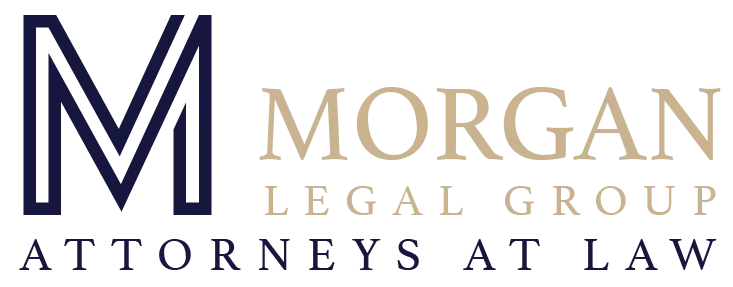Medicaid and Home Care Legal Services at Morgan Legal Group
Navigating Complex Healthcare Laws
Understanding the intricacies of Medicaid and home care can be challenging for many individuals and families. At Morgan Legal Group in New York City, we specialize in guiding our clients through the complex landscape of healthcare laws and benefits. Our experienced attorneys are dedicated to ensuring that you or your loved ones receive the necessary care and support without the overwhelming stress of legal and financial hurdles.
Expertise in Medicaid Law
Our legal team possesses extensive knowledge in Medicaid law, including eligibility criteria, application processes, and appeals. We are adept at handling cases that involve long-term care planning, home care services, and navigating the Medicaid system. Our goal is to secure the benefits our clients are entitled to, while protecting their assets and ensuring compliance with all legal requirements.
Medicaid Eligibility and Application Assistance
Securing Medicaid benefits can be a complicated process, fraught with paperwork and stringent eligibility criteria. Our attorneys are skilled in simplifying this process, providing comprehensive assistance from the initial application to the final approval. We ensure that all documentation is accurately prepared and submitted, increasing the likelihood of a successful application.
Asset Protection and Estate Planning
Protecting your assets while applying for Medicaid is crucial. Our firm excels in developing strategies that align with legal requirements, such as creating irrevocable trusts or other legal structures to safeguard your estate. This planning is essential to ensure that your assets are preserved for future generations while maintaining eligibility for Medicaid benefits.
Home Care Services Legal Support
For those who require home care services, navigating the legal and financial aspects can be overwhelming. We provide expert legal advice and support in obtaining home care services under Medicaid, ensuring that our clients receive the care they need in the comfort of their own homes.
Personalized Legal Solutions
At Morgan Legal Group, we understand that every case is unique. Our approach is highly personalized, focusing on the specific needs and circumstances of each client. Whether it’s advice on eligibility, asset protection, or securing home care services, we tailor our services to meet your individual needs.

Schedule Your Consultation

important things you should know
Questions And Answers
Eligibility for Medicaid Home Care
Medicaid coverage for home care services in New York is available to those who meet specific eligibility criteria based on income, assets, and medical need. Applicants must require assistance with daily living activities and meet financial eligibility requirements set by the state.
Understanding the Application Process
The application process involves submitting detailed financial documents and a medical assessment. It’s crucial to understand the specific Medicaid rules in New York, as they can be complex and are subject to change.
Financial Requirements for Medicaid
As of the latest guidelines, Medicaid home care eligibility in New York depends on income and asset limits that are periodically updated. These limits are different for individuals and couples and can vary based on specific circumstances.
Planning Strategies to Meet Eligibility
Asset and income planning strategies, such as the use of certain types of trusts, can be employed to meet Medicaid eligibility requirements while preserving assets.
Impact of Asset Transfers on Medicaid Eligibility
Asset transfers can significantly affect Medicaid eligibility. There’s a look-back period in New York, during which asset transfers can lead to a period of ineligibility for Medicaid benefits.
Legal Considerations and Strategies
Understanding and planning for the look-back period is essential. Certain transfers are exempt, and there are legal strategies that can be used to protect assets while maintaining Medicaid eligibility.
Estate Planning for Medicaid Eligibility
Estate planning with Medicaid eligibility in mind involves structuring your assets in a way that preserves your wealth while meeting Medicaid’s financial criteria. This might include setting up specific types of trusts, spending down assets in permissible ways, or converting countable assets into exempt assets.
Strategies and Legal Tools
Various strategies, such as irrevocable trusts, can be effective in estate planning for Medicaid eligibility. However, these tools must be used correctly to ensure they don’t adversely affect your eligibility.
Legal Responsibilities in Medicaid Application
Applying for Medicaid home care on behalf of a family member involves legal responsibilities, including accurate representation of financial and medical information. Any misrepresentation can result in penalties or loss of benefits.
Navigating Family Dynamics and Legalities
Understanding the legal implications and navigating family dynamics are critical in this process. It’s important to consider the long-term care needs of the family member and the impact of this decision on the rest of the family’s finances and estate plans.
Why Choose Morgan Legal Group?
Our firm is not just about providing legal services; it’s about offering peace of mind and security to our clients. Our team’s deep understanding of Medicaid laws and commitment to ethical, compassionate representation make us a trusted choice for those navigating the complexities of healthcare benefits in New York City.
Contact Us for Expert Guidance
If you’re facing challenges with Medicaid or home care services, contact Morgan Legal Group today. Our experienced attorneys are ready to provide you with the guidance and support you need to navigate these challenges successfully.



